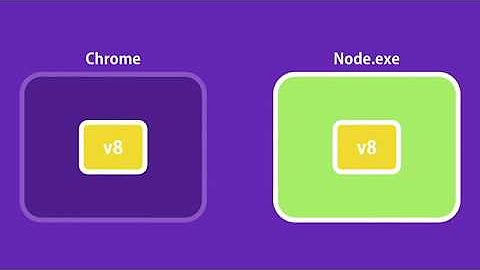Welcome to the Node.js Tutorials course! This comprehensive guide is designed to help you master the fundamentals of Node.js, one of the most powerful and widely-used JavaScript runtime environments for building scalable server-side applications. Whether you’re a beginner looking to get started with Node.js or an experienced developer aiming to deepen your understanding, this course will provide you with a solid foundation and practical skills.
Course Objectives
- Understand the architecture and core concepts of Node.js.
- Learn how to set up and configure your development environment.
- Build your first Node.js application from scratch.
- Master module creation, loading, and management in Node.js.
- Explore essential built-in modules like
Path,OS, andEvents. - Work with asynchronous programming using callbacks, promises, and event-driven patterns.
- Gain hands-on experience with HTTP requests and responses.
By the end of this course, you’ll have the confidence to create robust, efficient, and scalable Node.js applications.
Course Outline
1. Introduction to Node.js
- Node.js Architecture :
Dive into the fundamental architecture of Node.js, including its single-threaded event loop model, non-blocking I/O, and the role of the V8 engine. - How Node.js Works :
Understand the key principles behind Node.js, such as event-driven programming and the use of callbacks and promises. - Installing Node.js :
Learn how to install Node.js on your machine, set up the environment, and verify the installation.
2. Getting Started with Node.js
- Your First Node App :
Create your first “Hello, World!” application to understand basic execution and output in Node.js. - Globals in Node.js :
Explore global objects and variables available in Node.js, such asglobal,process, andrequire.
3. Modules in Node.js
- Modules in Node.js :
Understand the concept of modules in Node.js, including CommonJS and ES6 module systems. - Creating a Module in Node.js :
Learn how to create custom modules and organize your code effectively. - Loading (Requiring) a Module in Node.js :
Discover how to import and use modules in your Node.js applications. - Module Wrapper Function :
Dive into the internal workings of the module wrapper function and how it encapsulates your code.
4. Built-in Modules
- Path Module in Node.js :
Work with file paths and directories using thepathmodule. - OS Module in Node.js :
Interact with operating system-specific information and utilities using theosmodule.
5. Events and Event Emitter
- Events and Event Emitter in Node.js :
Understand the event-driven nature of Node.js and how to use theEventEmitterclass to handle events. - Event Arguments :
Learn how to pass and handle arguments when emitting and listening for events.
6. HTTP Module
- HTTP Module in Node.js :
Build simple HTTP servers and clients using the built-inhttpmodule. Handle requests and responses to create basic APIs.
Who Should Take This Course?
- Frontend Developers looking to expand their skills into backend development.
- JavaScript Developers who want to leverage their existing knowledge to build server-side applications.
- Beginners new to Node.js but familiar with JavaScript basics.
- Intermediate Developers seeking a deeper understanding of Node.js architecture and best practices.
What You’ll Need
- A computer with access to the internet.
- Basic knowledge of JavaScript (variables, functions, loops, etc.).
- A text editor or IDE (e.g., VS Code, Sublime Text).
- Node.js installed on your machine (instructions provided in the course).
Learning Outcomes
- Understand the core principles of Node.js and its ecosystem.
- Set up and run a Node.js development environment.
- Create and manage modules in Node.js.
- Use built-in modules like
path,os, andeventseffectively. - Build simple HTTP servers and handle requests and responses.
- Apply event-driven programming to solve real-world problems.
Course Format
- Video Lectures : Clear, concise video tutorials with live coding demonstrations.
- Hands-On Exercises : Practice what you learn by building small projects and applications.
- Quizzes and Challenges : Test your understanding with interactive quizzes and coding challenges.
- Support and Resources : Access to additional resources, documentation, and community support.
Why Learn Node.js?
- High Performance : Node.js is known for its speed and efficiency, making it ideal for building real-time applications.
- Scalability : Its non-blocking I/O model allows it to handle thousands of concurrent connections.
- JavaScript Everywhere : Write both frontend and backend code in JavaScript, reducing context switching.
- Rich Ecosystem : Access to thousands of npm packages for various use cases.
Next Steps
Ready to dive into the world of Node.js? Start with the Node.js Architecture lesson to understand the foundation of this powerful runtime. By the end of this course, you’ll be well-equipped to build your own Node.js applications and take your web development skills to the next level!
Let’s get started — the future of server-side JavaScript awaits!
Curriculum
- 1 Section
- 14 Lessons
- 14 Weeks
- Node js Tutorials14
- 1.1Node.js Architecture4 Minutes
- 1.2How Node.js Works5 Minutes
- 1.3Installing Node.js3 Minutes
- 1.4Your First Node App3 Minutes
- 1.5Globals in Node.js4 Minutes
- 1.6Modules in Node.js4 Minutes
- 1.7Creating a Module in Node.js5 Minutes
- 1.8Loading (Requiring) a Module in Node.js6 Minutes
- 1.9Module Wrapper Function5 Minutes
- 1.10Path Module in Node.js5 Minutes
- 1.11OS Module in Node.js5 Minutes
- 1.12Events and Event Emitter in Node.js7 Minutes
- 1.13HTTP Module in Node.js
- 1.14Event Arguments4 Minutes
Instructor


